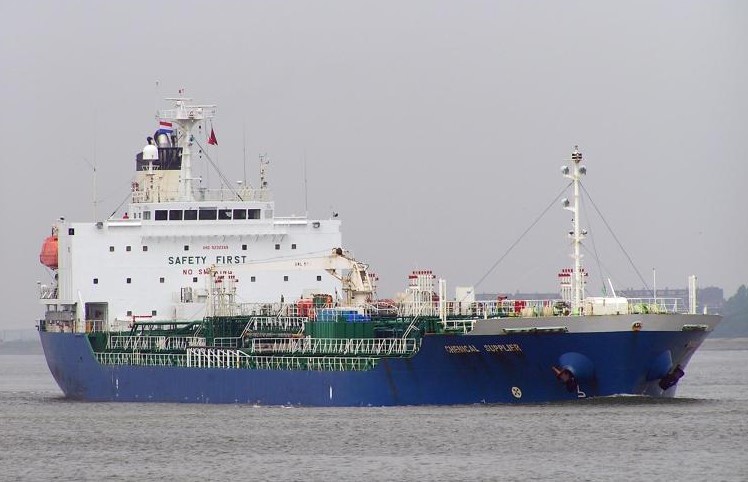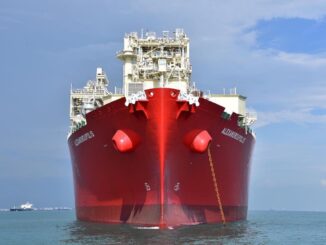
HIGHLIGHTS
Tehran detained Delta Poseidon, Prudent Warrior on May 27
US seized tanker carrying Iranian oil off Greece
Iran nuclear deal unlikely ahead of US midterm elections, say analysts
Geopolitical risks fueled by Iran and US tensions reasserted itself after the former seized two Greek tankers, unsettling an already volatile oil market that has seen oil prices rise to two-month highs.
On May 27, Iran detained two Greek-flagged and owned oil tankers – Delta Poseidon and Prudent Warrior in the Persian Gulf, some days after a tanker carrying Iranian oil was seized by the US off the coast of Greece.
The fracas comes as hopes of a nuclear deal between the US and Iran — which could potentially free up almost 1 million b/d of Iranian oil – start to fade.
The oil market continues to tighten given strains on diesel, jet and gasoline as holiday season arrives, exacerbated by falling Russian crude output after Kremlin’s invasion of Ukraine and signs that China demand may start to re-awaken after COVID-induced lockdowns.
Analysts at S&P Global Commodity Insights said it was unlikely that a nuclear deal would be forged before US midterm elections in November, but highlighted that the potential price impact would certainly be in the back of US policy-makers’ minds.
July ICE Brent spiked to a two-month high of $120.50/b in Europe-morning trade on May 30 and freight rates as assessed by S&P Global remain elevated amid lengthier transportation routes and riskier journeys.
Suezmax freight rates on a Persian Gulf to Mediterranean route were assessed by Platts at $9.29/mt on May 30, the highest since April 24.
Tanker seizures
The Delta Poseidon was carrying a 600,000-barrel cargo of Iraqi high sulfur fuel oil while the Prudent Warrior was carrying a 1 million-barrel cargo of Iraqi crude Basrah Medium, according to data from Platts cFlow, a ship tracking software from S&P Global. Both tankers were sailing through the Persian Gulf at the time of incident on May 27.An official from Delta Tankers, which operated the Delta Poseidon, declined to comment on the incident.
A spokesperson from Polembros Shipping, which manages the Prudent Warrior, told S&P Global, it was “making every effort to deal with the situation effectively.”
“The Prudent Warrior … remains detained in Iranian territorial waters,” Polembros said in a statement on May 28./ “Earlier today vessel’s master and members of crew managed to communicate with Polembros advising that they are in good health and are treated well.”
This incident took place after the US announced new sanctions on several individuals and entities allegedly involved in illicit Iranian oil trade. It also seized a cargo of Iranian crude from a Russia-flagged tanker Lana (formerly known as Pegas) near Greece.
On May 25, the US Department of the Treasury’s Office of Foreign Assets Control (OFAC) designated an international oil smuggling and money laundering network led by Islamic Revolutionary Guard Corps-Quds Force officials that has facilitated the sale of hundreds of millions of dollars’ worth of Iranian oil for both the IRGC-QF and Hezbollah.
In the sanctions note, Washington said UAE-based Zamanoil DMCC has also worked with the Russian government and Russian state-owned Rosneft to ship large quantities of Iranian oil to companies in Europe on behalf of the IRGC-QF.
A spokesperson at Zamanoil was unavailable for comment.
Saeed Khatibzadeh, a spokesperson at the Iranian Foreign Minister said May 29 that Iran-Greek ties “must not be hampered by deeply shortsighted miscalculations, including highway robbery on the command of a third party.” “The tankers crew are safe and in good health,” he added in a tweet.
The EU called for a speedy resolution to recent incidents.
“We immediately raised the seizure and expressed our strong concern with the Iranian authorities about these acts and call for speedy clarification, resolution and de-escalation,” an EU spokesperson said on May 29. “We are in very close contact with the Greek authorities on the situation of the vessel ‘Pegas’ under Greek custody.”
Shipping threats
Iran has threatened previously to seize shipping in the Gulf where more than a fifth of the world’s seaborne crude is loaded and shipped to global markets. Heightened tension in the Gulf around shipping could add to pressure on oil prices that continue to trade above $100/b as the market weighs the impact of sanctions hitting Russian oil supply.
A similar incident took place in mid-2019 when Iran seized the British-flagged Stena Impero after its tanker Adrian Darya 1 tanker was captured by UK on suspicion of attempting to deliver oil to sanctions-hit Syria. Stena Impero was released in late-September, more than a month after the release of Adrian Darya 1.
The Strait of Hormuz is a critical chokepoint through where 30% of the world’s seaborne oil transits.
According to data compiled by S&P Global Oil Security Sentinel report, security events such as physical attacks on petroleum infrastructure or shipping, in the Persian Gulf and the Arabian Peninsula region have tripled on an annualized basis since 2017. Last year saw a record 31 incidents, highlighting geopolitical risk in the region.
The first quarter has seen a surge in attacks with 13 incidents recorded in the region through to March 31. Saudi Arabia and the UAE bore the brunt of these attacks on physical energy infrastructure during the period, according to the Oil Security Sentinel report.
Source: Spglobal.com



